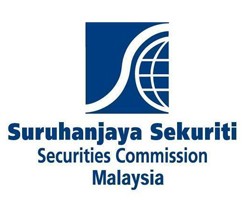Reproduced below is a press statement by The Centre for Independent Journalism (CIJ) expressing concern over a series of interrogations the Securities Commission has been conducting on four journalists for reporting the Kenmark shares issue.

CIJ Media Statement: Securities Commission’s interrogation shows need for journalist protection
29 June 2010
The Centre for Independent Journalism (CIJ) views with grave concern the rounds of questioning that the Securities Commission (SC) has been conducting on four journalists since last week related to the Kenmark shares issue.
While the SC may justify their action as being within the boundaries of the law, CIJ’s concerns are these:
One: The powers given to the Investigating Officer (IO) and the SC under Section 134 of the Securities Commission Act 1993 (SCA) are very wide and open to abuse. In addition, these provisions go against universal human rights principles.
- Under Section 134(2), a person brought in for questioning by the SC is legally bound to answer all questions. She cannot refuse to answer any question even on the grounds that it tends to incriminate her.
- Under Section 134(3), if the person brought in for questioning does not agree with the written statement, the IO can record the refusal and the reason for the refusal. While this is not problematic, under Section 134(4), any statement made and recorded under this Section shall be admissible as evidence in any proceeding in any court. This appears to render the refusal irrelevant.
- Under Section 134(5), if a person refuses to answer any questions, she shall be guilty of an offence and if convicted, be punished with a fine of up to one million ringgit or up to five years’ imprisonment, or both.
Two: Of particular concern to CIJ is the impact of the powers under section 134 on the role and responsibility of media and journalists. The SCA should differentiate a journalist from an ordinary informant.
- Journalists gather information from their sources to report on matters of public interest. Some of the information may be background information which is not published. Some information may have been given in confidence owing to concern for the safety of the source. A journalist cannot be forced to reveal any information that may reveal her source. Only for the most compelling of reasons related to immediate and demonstrable direct threat to public safety, can a journalist be compelled to provide information or reveal her sources, ie when the benefit of such disclosure is greater than the harm to media freedom.
- If journalists cannot protect their sources, it will be difficult to find people willing to speak to them. The protection of sources is a cardinal rule of journalism with good reason. If this trust is violated by the journalists, the journalists would find it difficult to pursue stories of public interest.
- Journalists will also think twice about taking on cases of public interest that may result in them being involved in lengthy and costly court battles, or being hauled in for questioning over their sources. Overall, there will be less information available to the public on important matters of public interest.
Bearing in mind all the above concerns, these are some of the questions that need to be answered:
-
- Were the journalists informed that they can bring in legal counsel when they were requested to go to SC office, however “friendly” the request is?
- Could the information sought by the SC be sourced through other means that will not infringe media freedom and responsibility?
The manner in which the investigation was carried out showed that the SC did not recognise the responsibility and duty of journalists – to provide information to the public on matters of public interest and to honour confidentiality agreements with sources. It is in the SC’s interests to ensure that journalists can continue to write and highlight matters on corporate governance and responsibility. This incident shows yet another legal impediment on media freedom, underscoring the need for journalist protection under the law.
Masjaliza Hamzah
Executive Officer
Related Internet Links:
Star gets interim stay order – the Star

Does it mean that a journalist's statement should never be taken in any event?
And would it be fair to launch all the accusations without knowing the very facts of the case?
It occurs to me that this amounts to nothing, but tembak belasah.